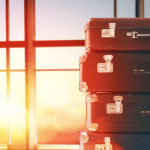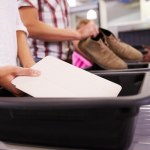
Personal Security
Personal security is an issue but not something to be overly concerned about in most countries. Take the precautions that you would at home. Use your instincts and be diligent and you will keep you and your belongings safe. Stick to the tourist areas in the first instance while you acclimatise yourself to a new city. Then you will be
Personal security is an issue but not something to be overly concerned about in most countries. Take the precautions that you would at home. Use your instincts and be diligent and you will keep you and your belongings safe. Stick to the tourist areas in the first instance while you acclimatise yourself to a new city. Then you will be more comfortable venturing further afield. You will know when you cross a street if it feels safe. Of course there are some cities you would not venture out in without your host or a driver, guide or translator. Johannesburg and many cities in South America are examples of cities with security issues. Cities in China and cities in South East Asia are mostly perfectly safe.
If you venture to countries beyond the mainstream, you will need to be aware of and sensitive to local customs. “Bribing” may be expected (India and Kazakhstan). What might seem like an insult to you may not be. Australians love black humour and often say the reverse of what they mean. Countries with extreme problems politically are not easy to travel in without the appropriate supervision. Try to avoid them. Iraq and Iran are two examples. If you must go there, research the appropriate security measures you will need and put them in place.
- Australian Department of Foreign Affairs and Trade http://smartraveller.gov.au/Pages/default.aspx
- New Zealand government’s Travel Safe website https://www.safetravel.govt.nz/
- UK Foreign & Commonwealth Office https://www.gov.uk/foreign-travel-advice
- USA Department of Homeland Security http://travel.state.gov/content/passports/en/alertswarnings.html
or the relevant equivalent in your home country will inform you of any travel warnings and your Travel Agent should be across these also. You can register at these websites and be emailed any updates and alerts for destinations that you nominate. Take a look at http://smartraveller.gov.au/guide/business/Pages/default.aspx for advice for business travelers.
Obey the laws wherever you go. Not only will this keep you safer, it is respectful.
Try to act like a local rather than a tourist. Depending which city you are in you may want to consider carrying a small amount of cash only and one or two credit cards. Leave the rest (with your expensive wallet) back in your hotel room.
- Photocopy the local area map from a guidebook rather than carrying the guidebook or use the map on your phone.
- Know the general route (main street names, etc) to where you need to go in a taxi. This way the taxi driver will think you have been there before. This will avoid the 10 minute trip across town taking 25 minutes (the tourist run) and costing you accordingly. Or take an Uber (or equivalent) and ask the driver to follow the map that he is provided on the tablet/phone app.
If you absolutely cannot avoid going to a country that the Department of Foreign Affairs (or equivalent) recommends against, make sure you notify the nearest embassy, high commission or consulate to register your being present in that country and your contact details in case of an emergency. You can also register your contact details at www.dfat.gov.au or the equivalent in your country.








